Sheep and goats are among the most economical livestock and can be kept indoors or outdoors, depending on the weather. They are also referred to as “poor man’s cows” and are extremely important to small and marginal farmers because they can live in any habitat and require nothing in the way of space, management, housing needs, or investment because they don’t consume much. Additionally, they receive no costly care or dietary supplements.
But Still, farmers separate the sheep and goats mainly because of reasons such as different genera, diverse food and mineral needs, Distinct Shearing demands, temperament and behaviour issues and disease transmission.
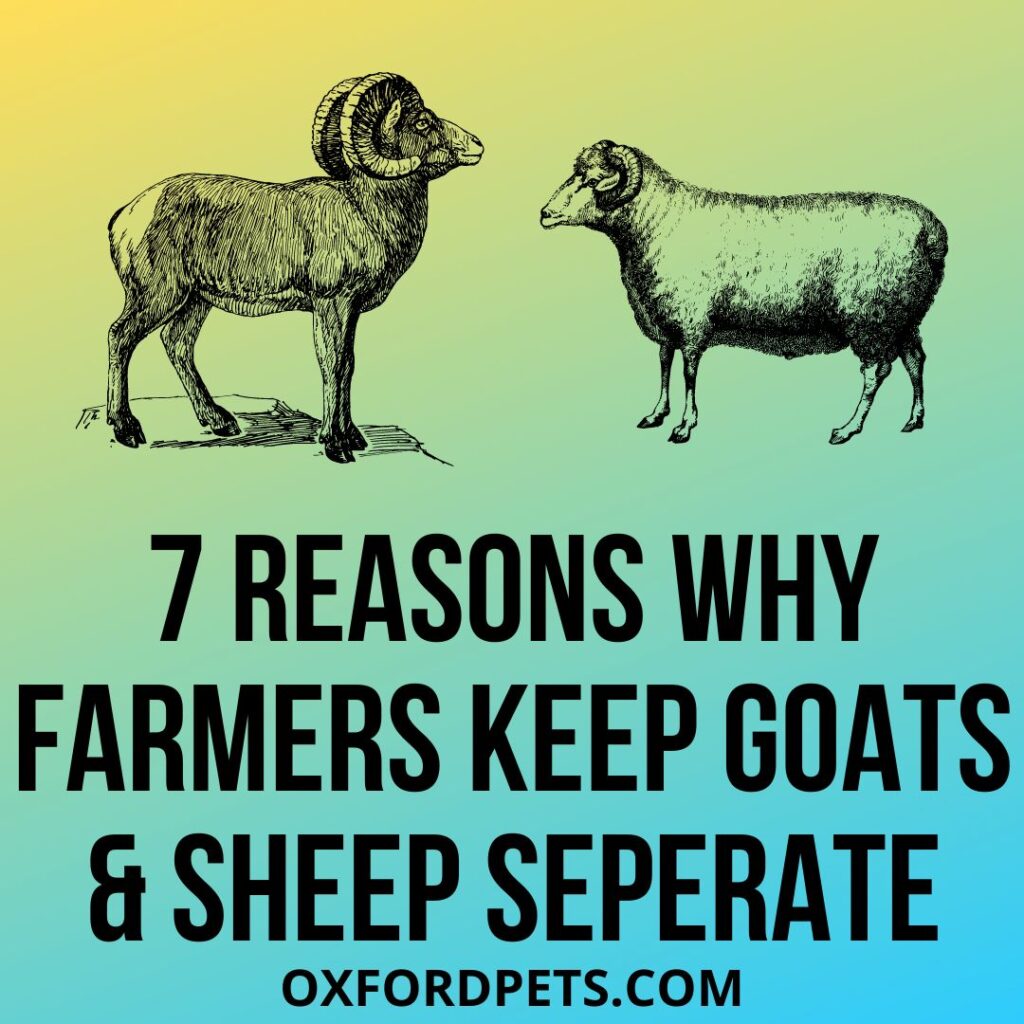
1) Sheep and goats are distinct Animals With different genera:
The sheep genus Ovis has 54 chromosomes and Goat Genus Capra has 60 chromosomes.
They speak distinct languages in their animal world and are separate species of animals.
While sheep droop their heads and charge their opponent to ram them, goats rear up on their hind legs to butt heads.
Since both species are herd animals, having a friend from their own species is essential to their happiness.
2) Sheep and goats can transmit diseases:
Goats and sheep can contract ringworm, rabies, chlamydiosis and Sharpie from each other.
There are several ways that sheep and goats can transmit diseases. One way is through contact with contaminated objects, such as feed or water troughs.
Another way is by coming into contact with infected animals, either through direct contact or by sharing pasture or housing. Finally, sheep and goats can also be infected with diseases by biting insects, such as flies or mosquitoes.
3) Sheep can not eat goat feed:
Goat feed contains a high level of copper and this food can cause copper poisoning in sheep. Mineral needs for Goats and sheep are quite different.
4) Goats and Sheep Shearing Requirements Differ:
Goats own hair coats that do not require shearing or combing, While Sheep typically have velvety wool that needs to be sheared at least once a year.
5) distinct temperaments: Goats are more stubborn than sheep
Sheep and goats together create a big mess as they have temperament issues.
The goats are notorious bullies and they treat the sheep very badly. So, sheep had to be moved to a different pasture.
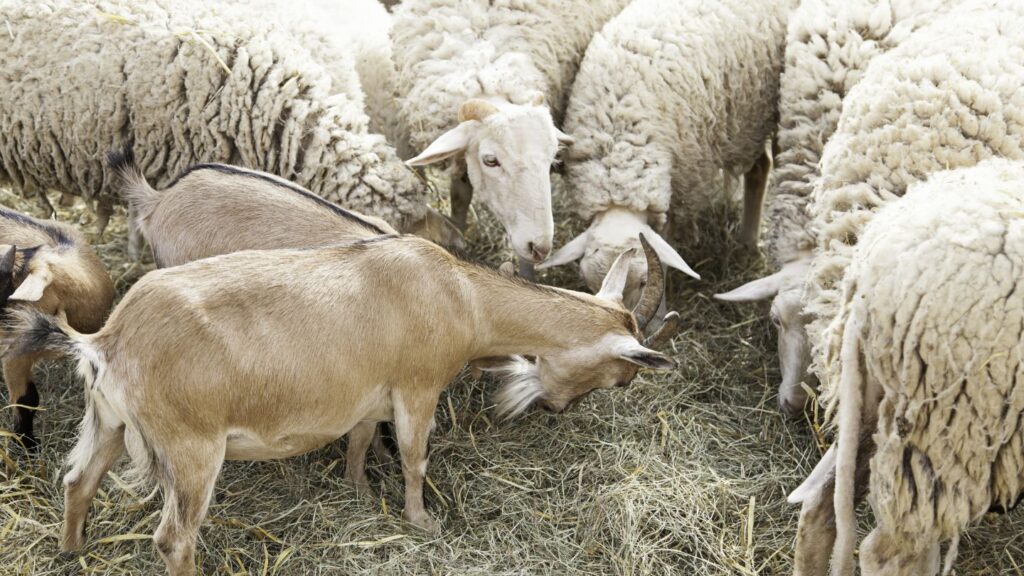
6) Goats and Sheep Horns Differences:
Goats have horns as the head of the animal curves or circles back over its eyes.
Sheep do not have these kinds of horns and So can peacefully stay with the goats, but if they fight goats can hurt sheep pretty badly.
The fighting styles for both differ and can harm each other badly.
7) Geeps: Goats and Sheep Offsprings are Stillborn:
The offspring of a sheep and goat is generally stillborn or sometimes lifeless and they usually don’t survive long due to immunity issues.
8) Unsuccessful Interbreeding of Goats and Sheep
Even though interbreeding is unusual, it can nonetheless occur, particularly if you have several animals. A geep is produced when a goat and a sheep interbreed.
A geep often has a short existence and frequently dies at birth. Interbreeding risks can be removed and potential aggressiveness during the breeding season can be reduced by isolating the animals.
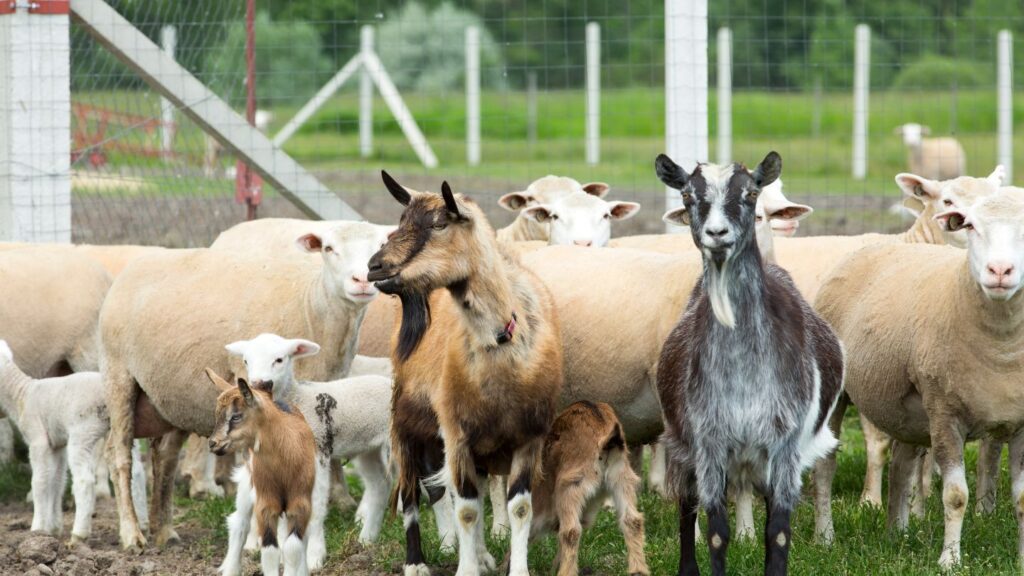
9) Sheep are grazers and goats are browsers:
Goats Usually feed on broadleaved tree species and eat brush and weeds than grass and other herbaceous plants hence termed ’grazers’ Sheep on other hand eat different parts of woody vegetation and are termed ’browsers;
f your pasture has a variety of fodder, you can accommodate more animals there if they are a mix of sheep and goats as opposed to just one type. If there are no shrubs around, goats will eat grass, although it’s not their preferred food.
10) Housing Needs Utilization Somewhat differs
The housing needs of the goat and sheep are similar, and they frequently coexist in the same area.
The three-sided shelter is what these animals like, and your sheep will use it to escape the sun on hot days, while the goats will use it to protect themselves from the rain and the cold.
11) Fencing Needs for Goats and Sheep Vary
Sheep require a different kind of fencing than goats do. Sheep don’t usually stray far, so your fence serves to keep predators out as well as to keep sheep in. You will need to improve your fence if you are introducing goats to your sheep because they are natural explorers and can quickly get past a fence intended for a sheep.
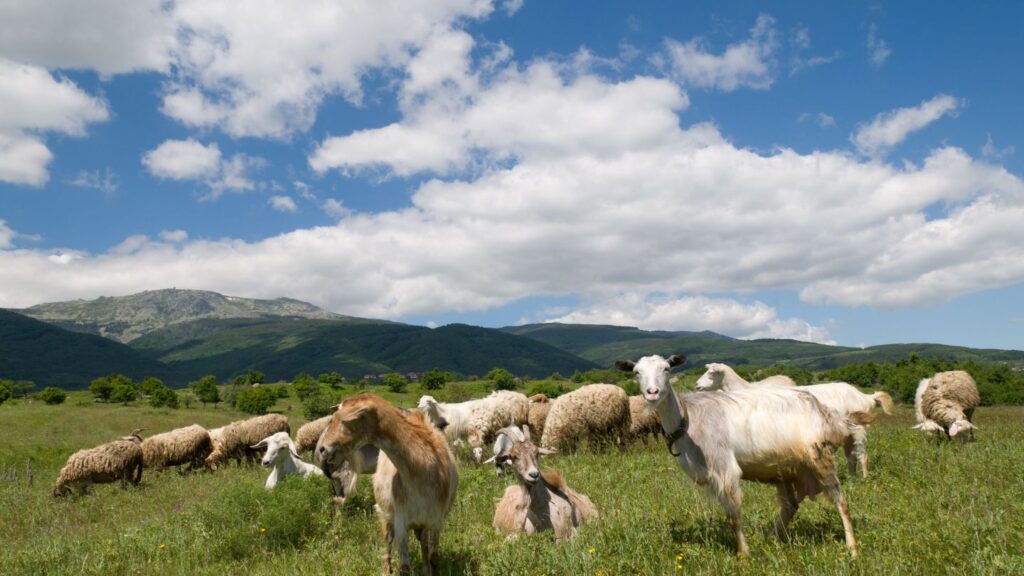
Bible Theory about sheep and goats
These words are in reference to the final judgment that is occurring at Christ’s return.
Do sheep and goats get along and breed?
Raising a goat and a sheep together is quite common. They are both small ruminant animals, and they fall under the Bovidae family and Caprinae subfamily.
The goat can provide milk, meat, and wool fibre (mohair and cashmere) or be used for clearing vegetation from brush or fields.
Similarly, A sheep can produce milk, meat and clear vegetation from brush or fields. But wool is the main reason they are brought up. But they can’t breed successfully as they have genetic differences and genera.
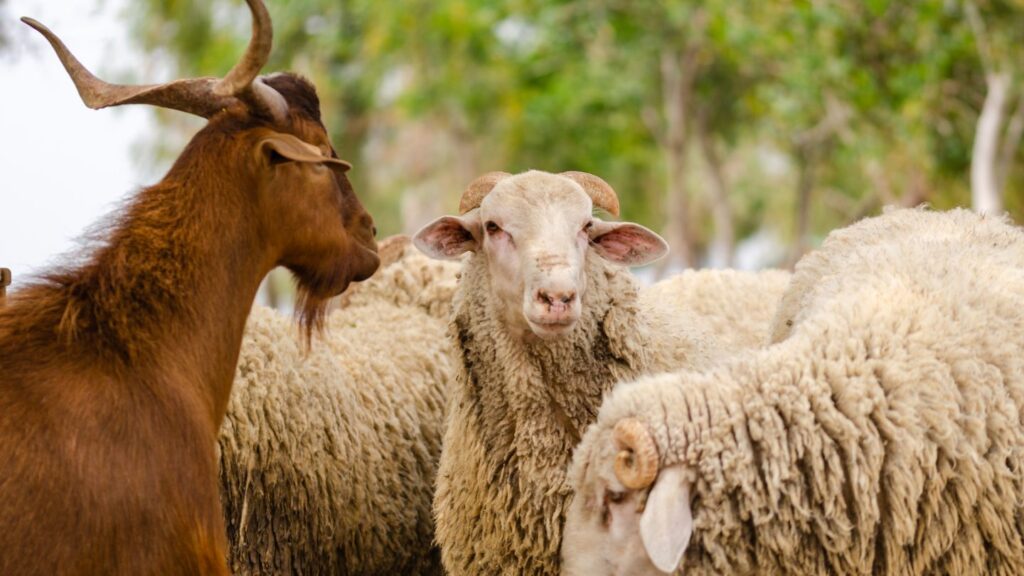
Are Geeps real? Can a geep survive?
A geep is not an animal that is born through sexual intercourse between a sheep and a goat; rather, it is the result of the merging of very early embryo cells of both species.
A geep usually can’t survive because of the difference in chromosomes. The offspring of two groups are rarely born, and if they are, they usually die quickly.
